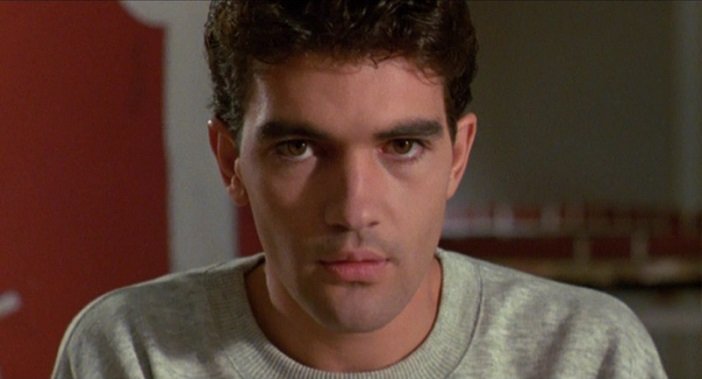
Spanish cinematography is undoubtedly one of the main cinematic powers on the international scene. Through the decades, represented by the directors like Luis Buñuel, Carlos Saura, Luis García Berlanga, Víctor Erice, Pedro Almodóvar, Alejandro Amenábar, or Álex de la Iglesia, Spain has produced some of the most interesting cinematic works, successful in both critical and commercial terms.
Spanish films survived the crisis period of the Franco regime, returning to the scene in the 60s and 70s with the works of the directors like Carlos Saura or Víctor Erice, but for full international recognition, modern Spanish films had to wait until the last two decades of the 20th century to produce the works of directors like Almodóvar, Amenábar or Bigas Luna.
That success continued in the 21st century with the addition of directors like Jaume Balagueró. Despite the international success of Spanish cinema, many excellent directors and their films had still have the problem in finding recognition for their work. Many of these movies have big problems in getting wider (or any kind of) distribution outside of Spain, despite the evident quality of the films.
Even some of the excellent movies from the well-established directors fail to get wider distribution, or are dismissed with critics or public for various reasons. One of the main reasons for this is the internationally perceived notion of how Spanish films should look, based on the box office successes of established directors.
Also, lack of money for marketing and various other distribution problems makes it hard for the new and different directors to be recognized internationally. Even some movies that enjoyed success at big festivals cannot find enough audiences. This article is about these movies, the ones with obvious quality that deserve to be widely seen.
20. Aro Tolbukhin – En la mente del asesino (Aro Tolbukhin in the Mind of a Killer, 2002) – directed by Agustí Villaronga, Pierre Racine, and Lydia Zimmermann
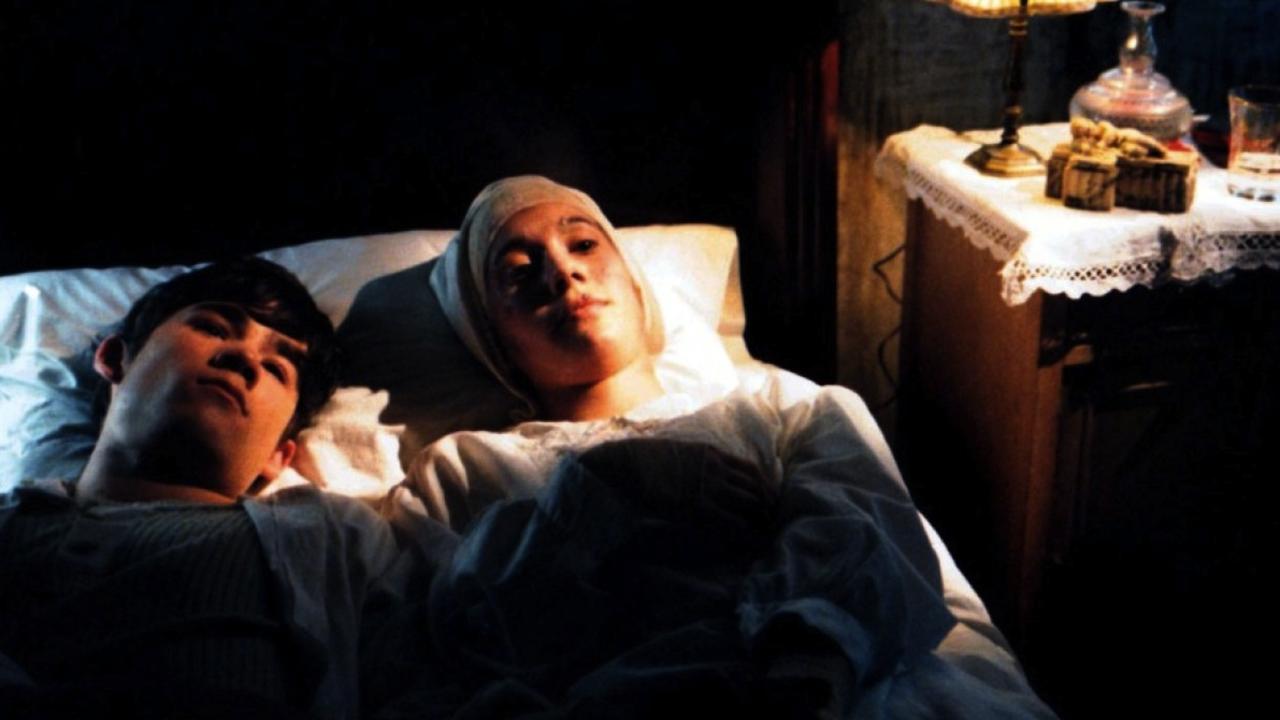
This is a work of three directors – Isaac Pierre Racine, Agustí Villaronga, and Lydia Zimmermann. It tells the story about serial killer and sailor Aro Tolbukhin (Daniel Giménez Cacho), who was responsible for a mass murder in a hospital while on a religious mission in Guatemala, while also claiming responsibility for killing 17 women during his sailing travels.
It tries to reconstruct his life, from his early years in Hungary and onward, blending “documentary” material with dramatized scenes. The movie uses various film formats in achieving its look – 35mm, super 8mm, 16mm, and others. More than trying to psychologically explain his actions, it tries to paint a picture of a dramatic life through his memories, real or imagined events, and lyrical and cruel passages.
While never justifying his supposed actions, the directors of the film are not going for one-sided solutions, showing us in the process that it’s impossible to completely understand another human being, and that we cannot reach an absolute truth by facts alone. At the end of the story, it’s less important if Aro Tolbukhin’s acts were real or not – but whether events of his life make for an intriguing journey for the viewers.
19. Fermat’s Room (La habitación de Fermat, 2007) – directed by Luis Piedrahita and Rodrigo Sopeña
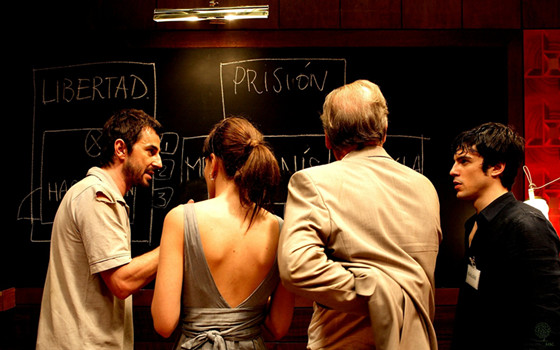
One of the most interesting Spanish movies of recent years is this excellent thriller, written and directed by Luis Piedrahita and Rodrigo Sopeña. The story revolves around four mathematicians participating in a contest of solving a math enigma, while trapped in a contracting room and in danger of being crushed by its walls if they do not succeed.
The film takes inspiration from similar and successful movies like “Saw” and “Cube”, but is not a copy of the two. It works more as a thriller and features math problems as the starting point. Similar to “Cube”, it uses its location in intelligent and economical ways.
The film spends most of its running time on characters; here, the big plus is the acting, which is very good (Alejo Sauras, Elena Ballesteros, Lluís Homar and Santi Millán play the mathematician main characters, and their host is played by Federico Luppi). The plot is very well tied up in the end, again relying on the characters’ decisions and surprises, and it may look like a twist for twist’s sake for some, but it all comes together very naturally.
18. Carol’s Journey (El viaje de Carol, 2002) – directed by Imanol Uribe
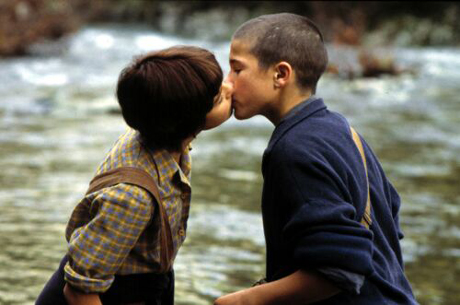
“El viaje de Carol“ is a touching, warm, and beautiful drama about the adventures of a little girl named Carol (Clara Lago) in 1930’s Spain during the Civil War. It was directed by Imanol Uribe, who also made the very good thriller “Numbered Days” (“Días contados”), another excellent and underrated Spanish film. Here, he makes a film about Spain in its hardest period, told through a child’s point of view, and although this device has already become a cliche, this time it worked quite well.
This is not a movie intended to explicitly take any political side, but to tell the story about how children bond and try to react in situations like this. The war here is depicted more in the background and as a setting for their attempts to stay childlike, no matter how horrible things are around them.
The film is not a light-hearted portrait of people during the war, but rather a sad and moving work, wonderfully acted both by children (Lago as Carol and Juan José Ballesta as her friend Tomiche are great) and adults (notably Rosa Maria Sardà as Maruja, the schoolteacher, and Álvaro de Luna as Don Amalio), and shot with a painter’s eye with the settings painted in soft colors. It’s a really underrated and highly recommended gem!
17. Anguish (Angustia, 1987) – directed by Bigas Luna
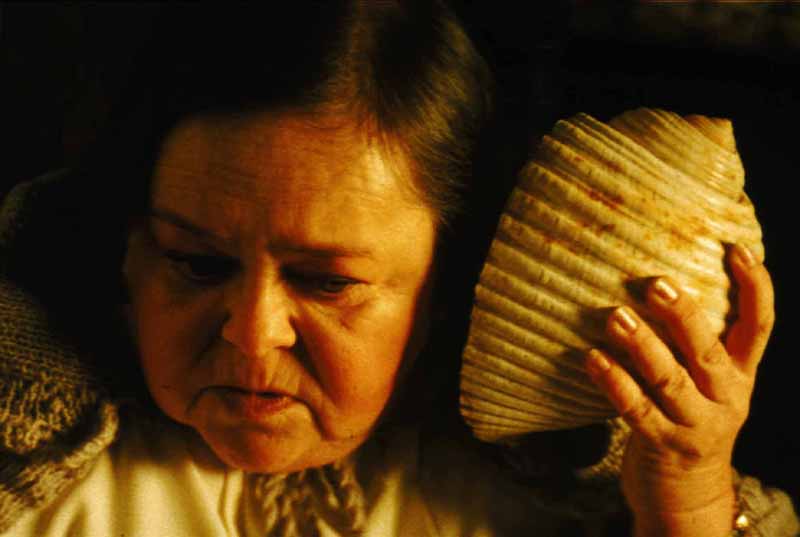
This extremely interesting horror film was directed by Bigas Luna in 1987, before his series of erotic dramas in the 90s. “Angustia” (“Anguish”) is a metafilm, presenting a story of a theatre audience watching a movie about overbearing mother, Alice (Zelda Rubinstein), controlling her son, John (Michael Lerner), through hypnosis, forcing him to murder people, remove their eyes, and bring them back to her.
As the story progresses, the audience starts experiencing panic attacks and weird behavior. Soon, the events on the screen start to parallel those in the theatre, with members of the audience being killed by an unknown person.
This is one of the most overlooked Spanish horrors; Luna masterfully blurs the line between the events onscreen and in the theatre, between fiction and reality, constantly increasing the amount of tension, making us part of this interesting and terrifying experiment. The main surprises come near the end of the film, when the line between fiction and reality is almost completely blurred.
But that’s not all – the film has very effective ending, adding another metacinematic layer that builds on some previously effective hints about the audience’s part in the picture. The direction is sometimes crude, but nevertheless, Luna succeeds in making a very effective and scary meta-horror.
16. Pellet (El Bola, 2000) – directed by Achero Mañas
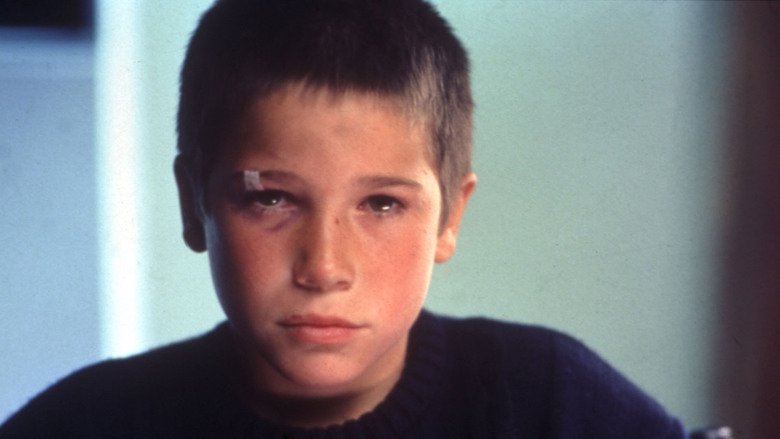
“El Bola“ was the feature film debut of Achero Mañas, previously known mostly as a director of short films. It’s a wonderful little film that came out of nowhere, which won the Goya Award for Best Film, but still didn’t get the wide distribution and attention it deserved. It tells the story of Pablo (Juan José Ballesta), who a lives miserable life with his abusive father (Manuel Morón), until a friendship with Alfredo (Pablo Galán), a new kid in Pablo’s school, gives him hope for a better tomorrow.
The acting is marvelous from both the children and adults (Ballesta especially gives wonderfully natural performance), and the perfect direction allows all the powerful moments to shine with full power.
The film is brutal, sad, warm, and dangerous; all the emotions and adventures of the main character are given enough space for us to fully grasp the reality of the Pablo’s life (and the lives of many children in similar situations), but does not offer any easy solutions. The film feels completely natural and emotional without going in a predictable direction, which is one of its biggest strengths. It’s a great achievement for all involved.
15. Week of the Killer (La semana del asesino, 1972) – directed by Eloy de la Iglesia
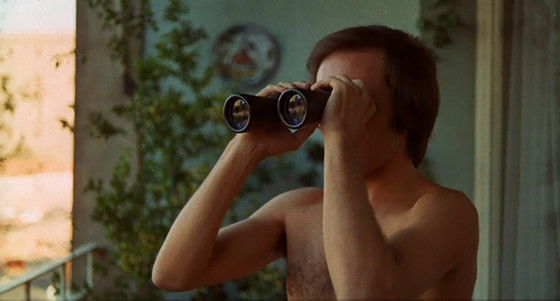
“La semana del asesino” (“Week of the Killer”) is one of the most interesting Spanish movies from the 70s. Directed by Eloy de la Iglesia, this is a movie about Marcos (Vicente Parra), a butcher who, after he accidentally kills a man, tries to cover up the remains of his crime. However, his surroundings and his tortured mind will soon start to work against him as he descends into the spiral of murder, with one crime leading to another.
This is a really gritty horror-drama that very successfully portrays the human mind under the pressure of everyday life, slowly descending into madness and paranoia. A political dimension is also quite present here; it’s not overemphasized, but rather effectively suggested.
“Week of the Killer” was made during the last years of the Franco regime in Spain, and the influence of the political climate of that time is very important for the film and for the portrayal of the protagonist’s actions.
The acting is excellent as is the direction. Much of the murder and explicitness are mostly based on suggestions, although the fim is not without its explicit moments that work very well in the context of the movie. Some surreal images and a generally gritty atmosphere are also big pluses to this excellent but sadly mostly forgotten film.